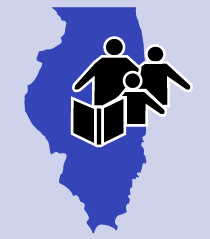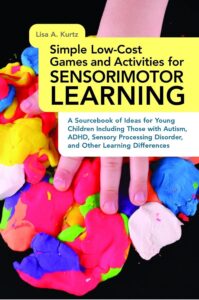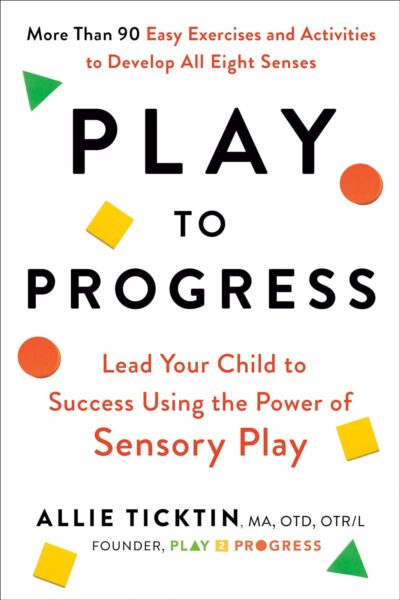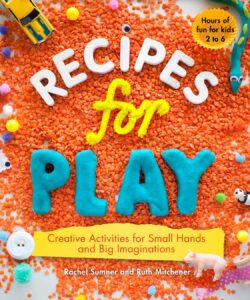For kids, simple is better. They love the paper a gift was wrapped in, the box that it came in and THE PERSON it came from most of all!
“The best toys are those that support parents and children playing, pretending and interacting together.”
– American Academy of Pediatrics Report on Selecting Appropriate Toys, 2019
Using Household Items for Early Intervention
You Have Everything You Need: Using Household Items for Early Intervention

Written with assistance from Hsiu-Wen Yang, OT
Children learn and develop through play, but does that mean you need to spend a lot of money on expensive toys? No. In fact, the best toys are often common household items. Young children learn best when they are in natural settings with the people and materials that are familiar to them. Early intervention providers may use this principle to help you choose materials already in your home, teach you how to use everyday objects to achieve your child’s developmental goals, and engage your child in activities using their interests.
Remember a “toy” is just a tool to support your child’s developmental goals and “play” is just a method we use to teach. You play an important role in your child’s everyday experiences. You help your child grow stronger through play. Next, we share a list of common household items and related activities that you can use to support your child’s development.
Empty Plastic Bottles
Have you tried bottle bowling? This is a fun activity that can work on your child’s gross motor skills. First, fill several plastic bottles with the same amount of water. To make it colorful, add paint or food coloring into the water. Set the bottles up like bowling pins. Grab a ball and ask your child to knock the bottles down! In addition to building gross motor skills, you can also boost cognitive and communication development by asking your child to identify the colors in the bottles.
For more ideas, see the full article https://eiclearinghouse.org/articles/everything/
Everyday Early Intervention: Let’s Get Dressed

Getting dressed is an everyday activity that is full of opportunities to work on EI outcomes. Getting undressed for the bath, putting on warm clothes for outside play, and changing from pajamas to daytime clothes are opportunities to practice skills. During these moments, your child is observing, trying new physical skills, and talking with caregivers. Here are some ways you can help your child learn and develop new skills during this everyday routine.
Language Skills
- Name the articles of clothing, use descriptive words for colors and textures of items.
- Describe the patterns and pictures on clothing.
Fine and Gross Motor Skills
- Encourage your child to try snaps, buttons, and zippers.
- Help your child practice pushing her arms into the sleeves of her coat and balancing as she puts on pants.
The Role of the Service Coordinator in Early Intervention

A service coordinator brings expertise about the early intervention system, including knowledge about rules, regulations, and processes; knowledge about resources, supports, and services available; and knowledge and skills in teaming and collaboration. Each family is linked with a service coordinator who will partner with and support the family.
Service coordinators collaborate with families by exchanging information with families throughout the process. They gather information from families regarding their family and child, including their priorities, strengths, and needs, and they share information with families about the early intervention system, such as its rules, regulations, specific timelines, and services. This exchange of information helps the family make informed decisions. To learn more about this very important part of your early intervention team…
Recommended Books and Resources
Enter our Giveaway!
Winter Newsletter Family Read-aloud Prize Package
Spending time together while reading aloud helps to create strong parent-child bonds and promotes healthy brain development. Complete the entry form below for a chance to win a read-aloud prize package!
All entries received by 3/3/2024 will receive a gift in the mail.
The winner can choose the preferred language for books.

Important System Updates
The State Systemic Improvement Plan (SSIP) Update
The eight leadership teams are meeting regularly and developing their action plans. All sites continue to assess their area’s capacity-building needs and raise awareness of SSIP activities. Each area’s plan is individualized to address the needs of the children, families, and providers in their area. The teams continue to be supported by system partners, and leadership from all the teams comes together to meet as well.
While the new sites are primarily focused on the child outcomes process, the original sites are turning their attention to family engagement. The family engagement work will center around the use of the Pyramid Model in early intervention. Teams will soon complete some additional planning tools and begin their capacity-building around this model.
If you have any comments or questions about the Plan, please email Chelsea Guillen at cguillen@illinois.edu.
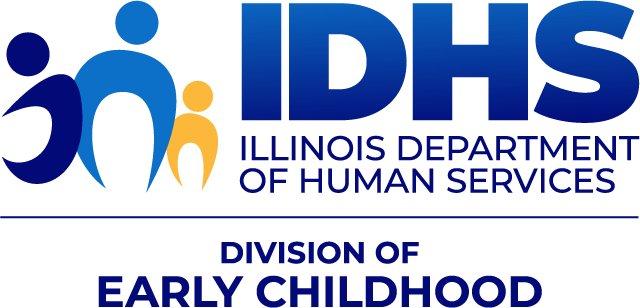
Upcoming Events
Early Intervention Family Town Halls (Virtual)
The Director of the Bureau of Early Intervention is hosting a series of four virtual town hall events for families of children in early intervention. During this time, you can share your experiences, ask questions, and voice your suggestions to improve early intervention.
REGISTER BY completing this form OR contact Sarah Isaacs, Email: isaacs@illinois.edu or Phone: 217-265-6875.
2024 Meeting Dates:
Tuesday, February 6, 2024
English/ASL/Inglés – 9:30 – 10:30 AM
Spanish/Español – 10:30 – 11:30 AM
Tuesday, May 7, 2024
English/ASL/Inglés – 6:30 – 7:30 PM
Spanish/Español – 7:30 – 8:30 PM
Thursday, November 7, 2024
English/ASL/Inglés – 6:30 – 7:30 PM
Spanish/Español – 7:30 – 8:30 PM
Wednesday, September 4, 2024
English/ASL/Inglés – 9:30 – 10:30 AM
Spanish/Español – 10:30 – 11:30 AM

